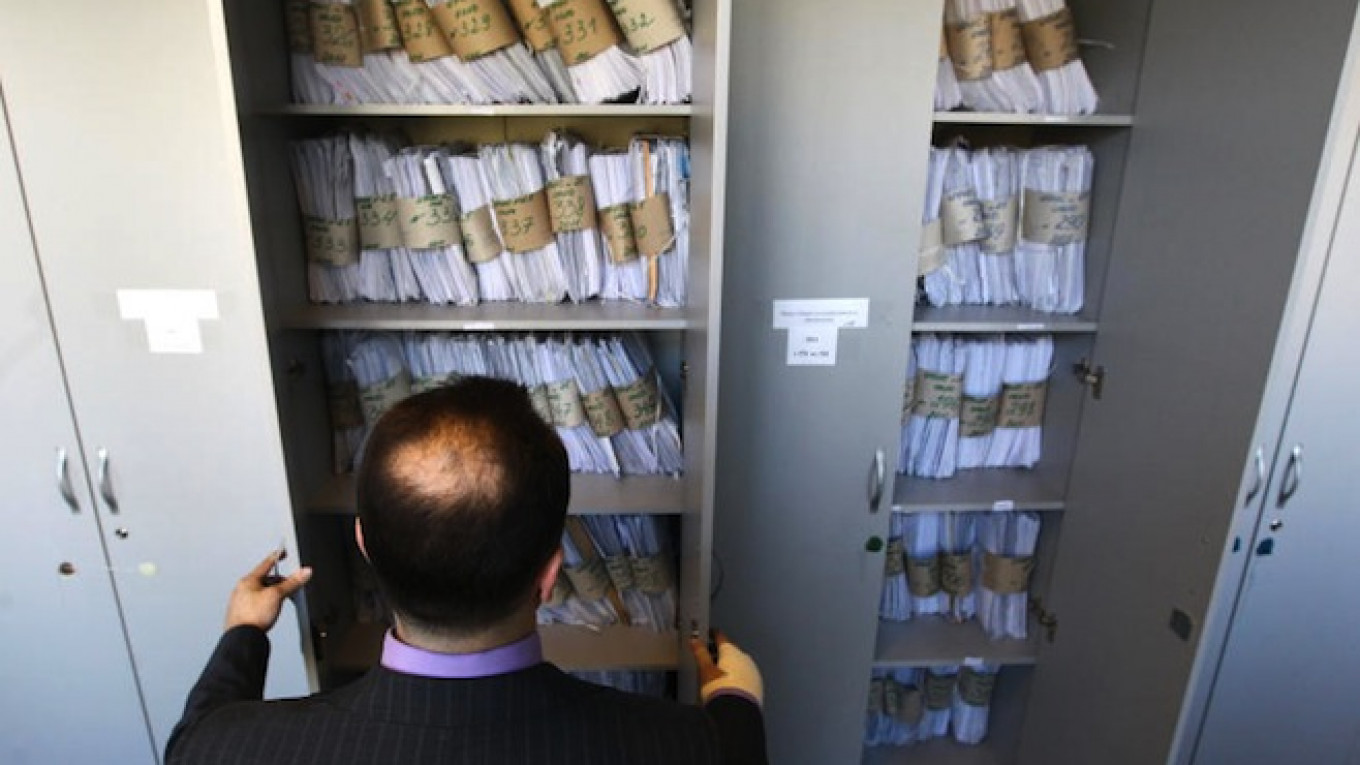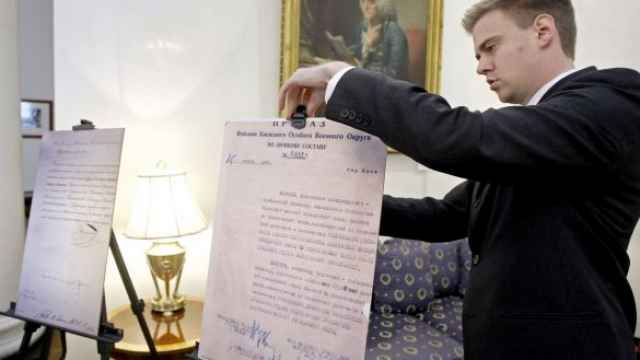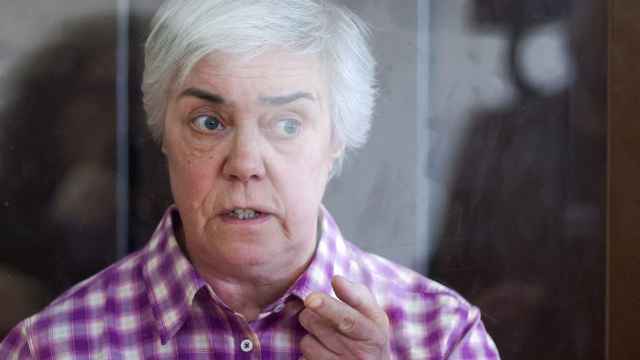The United States will return to Russia more than 20 valuable historical documents which were stolen from Russian archives in the early 1990s, the Kommersant newspaper reported Friday.
Among a total of 28 documents are authentic orders of Russian rulers including Peter the Great, as well as papers signed by former Soviet leader Josef Stalin, Kommersant reported.
The papers were discovered during an investigation carried out by the U.S. Department of Homeland Security between 2006 and 2012.
The official handing over of the missing documents to Russian authorities will be held on March 3 in the residence of the U.S. Ambassador to Russia John Tefft.
The ceremony will be attended by representatives of the U.S. Department of Homeland Security and Russia's Culture Ministry as well as history experts and prominent cultural figures.
William Stevens, spokesman for the U.S. Embassy in Moscow, told Kommersant that the event signifies that despite political confrontation, cooperation between the two countries on practical issues continues.
A Message from The Moscow Times:
Dear readers,
We are facing unprecedented challenges. Russia's Prosecutor General's Office has designated The Moscow Times as an "undesirable" organization, criminalizing our work and putting our staff at risk of prosecution. This follows our earlier unjust labeling as a "foreign agent."
These actions are direct attempts to silence independent journalism in Russia. The authorities claim our work "discredits the decisions of the Russian leadership." We see things differently: we strive to provide accurate, unbiased reporting on Russia.
We, the journalists of The Moscow Times, refuse to be silenced. But to continue our work, we need your help.
Your support, no matter how small, makes a world of difference. If you can, please support us monthly starting from just $2. It's quick to set up, and every contribution makes a significant impact.
By supporting The Moscow Times, you're defending open, independent journalism in the face of repression. Thank you for standing with us.
Remind me later.






